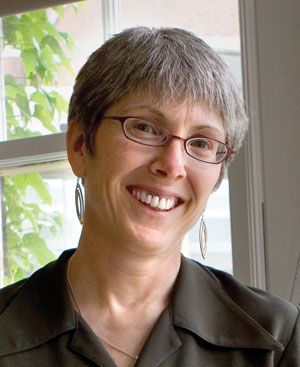A group of female lawyers have formed the Women’s Court of Canada to rewrite key Supreme Court of Canada decisions from a feminist perspective in hopes of ending what they call a recent neglect of equality rights.

“The goal is to spur a debate about what equality means and to do that in a very concrete way, not in an overly abstract academic way,” says University of Toronto law professor and WCC co-founder Denise Réaume.
“We have the impression that the way equality jurisprudence has gone in the last few years was, in a way, making the debate shut down. People were getting pessimistic about the prospects for getting anywhere with equality litigation, so people were starting to just shut up about it. We thought this is too important for people to just shut up about it. People have to keep talking about what equality can and should mean.”
The WCC came out of discussions a few years ago at a conference of the Women’s Legal Education and Action Fund, says Réaume, where a group of some 30 female lawyers were pondering the future of equality law.
At a dinner meeting, “all of a sudden somebody said, ‘You know, we could do a better job of this than the Supreme Court is doing,’” says Réaume, who teaches tort law and discrimination law. “It was something said in frustration, and not really that seriously, but it kind of stuck with everybody.”
The off-the-cuff remark received further discussion the following morning at the conference, and the group decided that rewriting entire SCC cases “might be a way of really engaging with equality issues at a deeper level,” says Réaume, who adds the hope is the rewritten judgments will appeal to a wider audience than academic articles would.
A few of the women at the LEAF conference volunteered to write a few of the cases, and the idea continued to catch fire, with several other female lawyers jumping on board to participate
The WCC is now made up of academics, activists, and litigators. Its first set of judgments has been published in the current issue of the Canadian Journal of Women and the Law. Their publication was celebrated earlier this month during International Women’s Week at York University’s Osgoode Hall Law School and the University of Toronto’s Faculty of Law. The schools held a reception and symposium under the theme “rewriting equality.”
The project is funded by the Law Foundation of British Columbia, the Law Foundation of Ontario, and the federal Department of Justice. The group says it is guided by Oscar Wilde’s statement that, “The only duty we owe to history is to rewrite it.”
Avvy Go, a Toronto lawyer and Law Society of Upper Canada bencher who is writing a WCC case, says the group is a reaction to its members’ disappointment in the way women’s equality issues have been handled by the courts in the past five to 10 years.
“There seems to be a regression of the equality rights in terms of the Charter of Rights jurisprudence,” she says. “The courts seem to be showing more and more deference to the government of Canada; they are allowing some questionable laws to be left unchallenged.”
Canadian Journal of Women and the Law co-editor Janet Mosher, who is an Osgoode professor, says the initiative dovetails with her publication’s goals.
“It creates the opportunity to open conversations about different conceptions of equality,” she says. “It creates a written record of some of those ideas. There’s lots of academic work about equality, and I think one of the really significant contributions is to put those alternative conceptions into the form of judgments, to show the way alternative conceptions of equality can actually shape the judicial decision itself.”
Initiatives similar to the WCC are sprouting up in other parts of the world.
In the United States, a group of academics published a book rewriting the Brown v. Board of Education decision that ended legal segregation in public schools, as a means of revisiting the significance of that case.
The Feminist Judgments Project in the United Kingdom, which Réaume says was inspired by the Canadian effort, has scholars rewriting any judgment that could benefit from a gender-specific analysis.
Réaume has been contacted by people from the legal communities in India and South Africa who would like the WCC’s organizational help in starting up their own initiatives.
Réaume says the group’s future plans include the creation of “ordinary language” versions of Supreme Court equality cases for non-lawyers interested in gaining a better understanding of the state of equality law in Canada.
“We’re going to keep going,” says Réaume, noting the WCC currently has released six rewritten cases with a seventh on its way shortly, while three more judgment writers have recently been recruited.
“What I would like to see happen, because I think it would be a really fascinating body of scholarship, would be to get to the point where we’ve got a kind of parallel set of judgments about every s. 15 case that the Supreme Court has ever dealt with.”
Réaume says she hopes the WCC judgments are also used as learning tools for law students and by litigators who may be able to use some of the arguments to pursue court actions.

 “The goal is to spur a debate about what equality means and to do that in a very concrete way, not in an overly abstract academic way,” says University of Toronto law professor and WCC co-founder Denise Réaume.
“The goal is to spur a debate about what equality means and to do that in a very concrete way, not in an overly abstract academic way,” says University of Toronto law professor and WCC co-founder Denise Réaume.